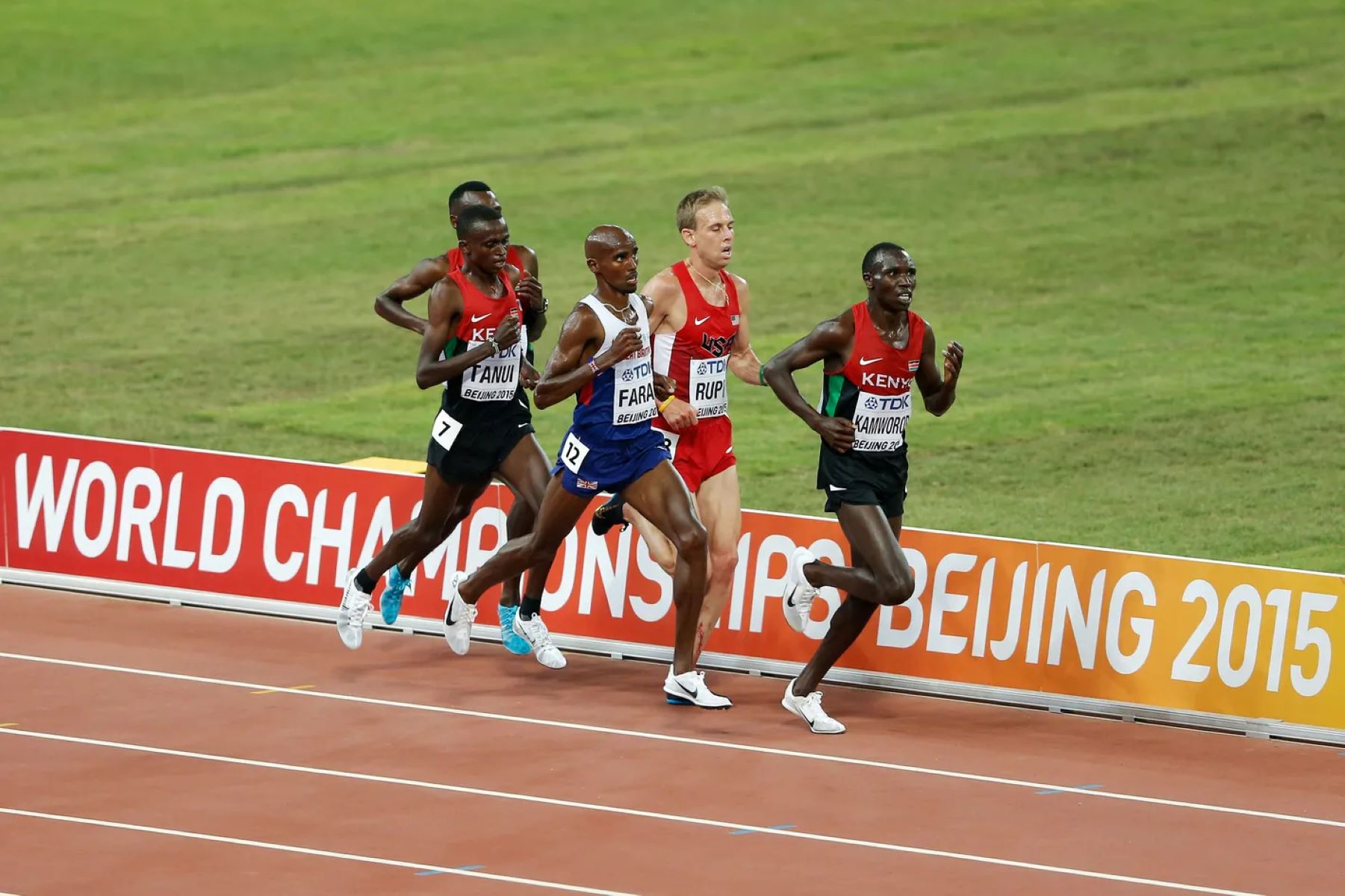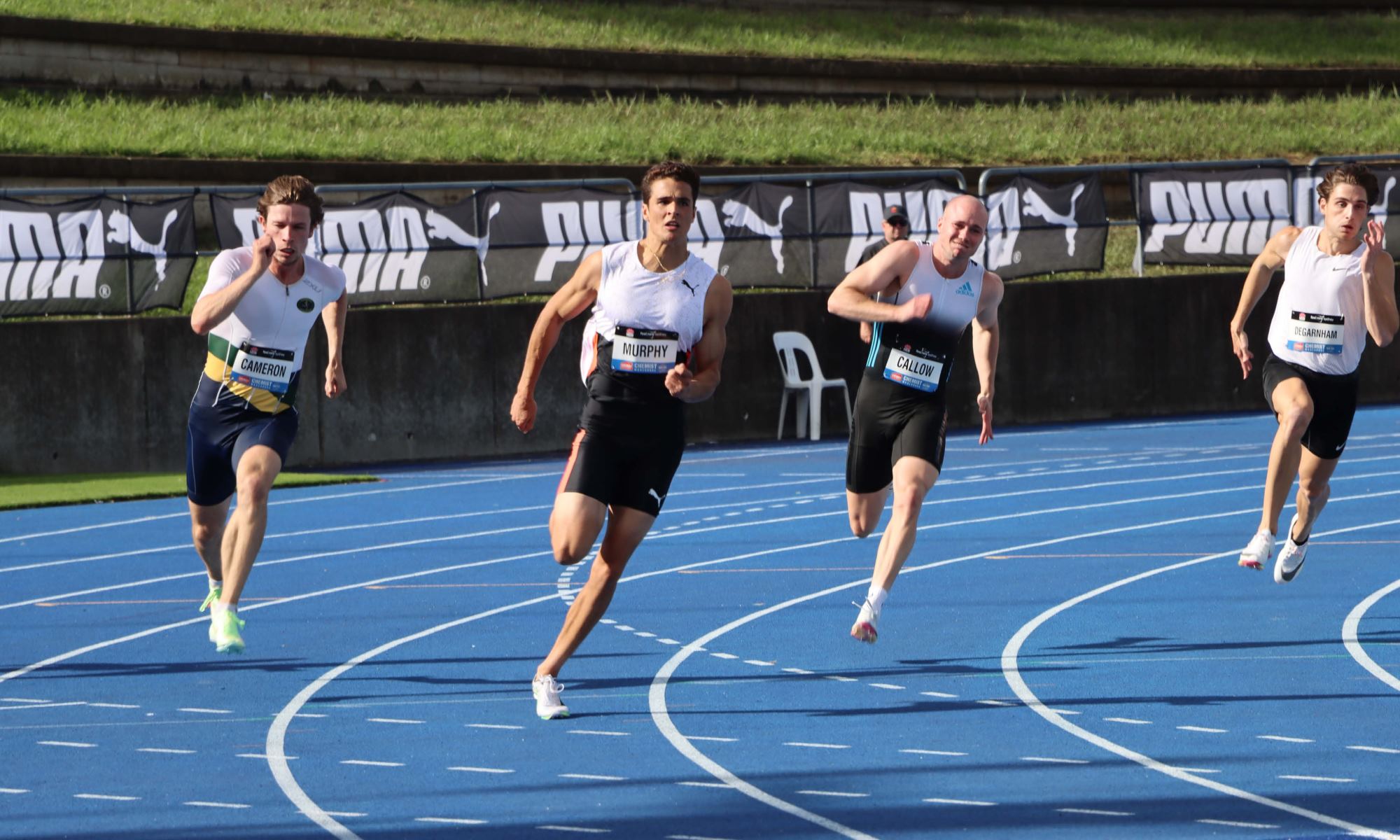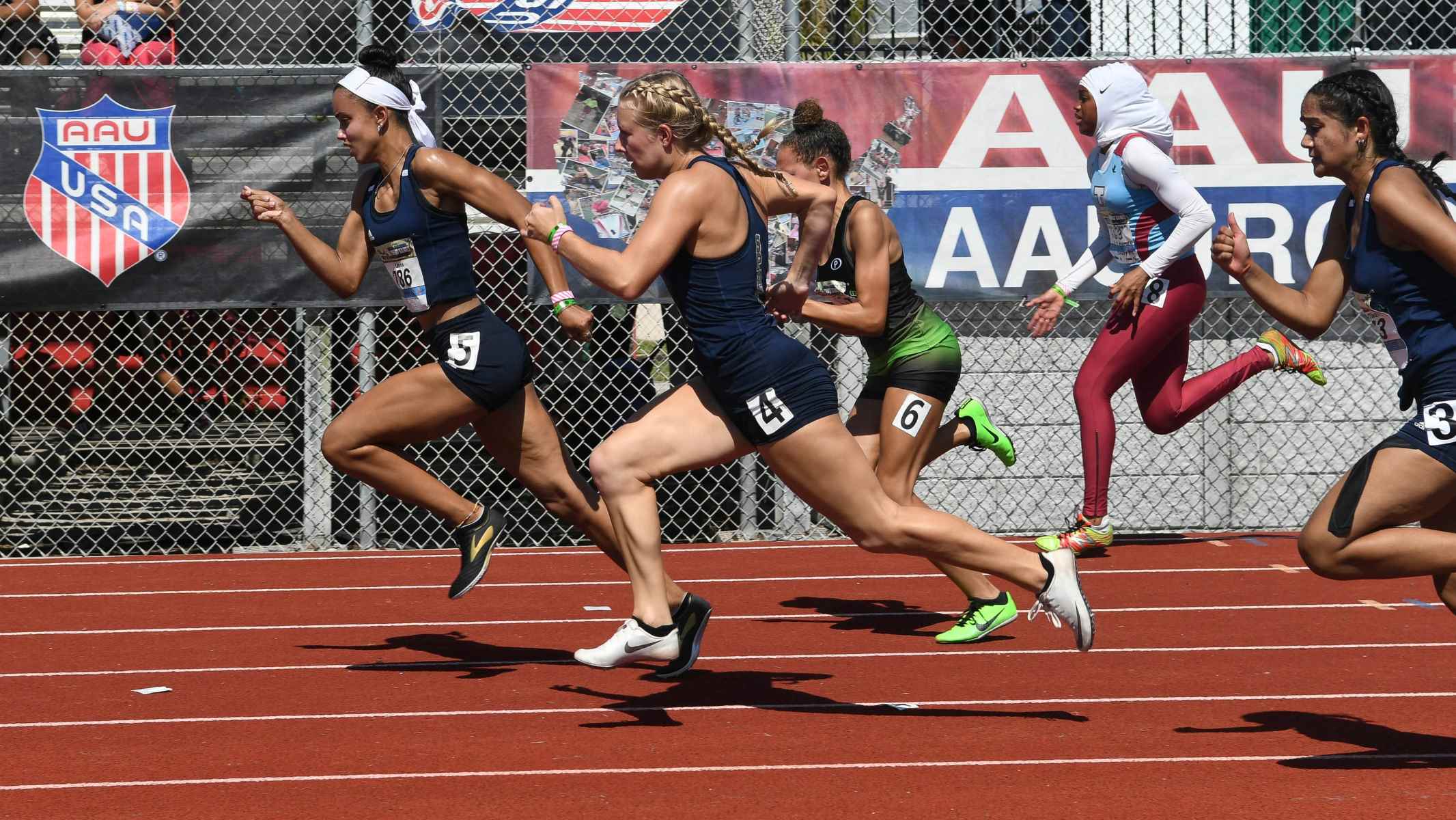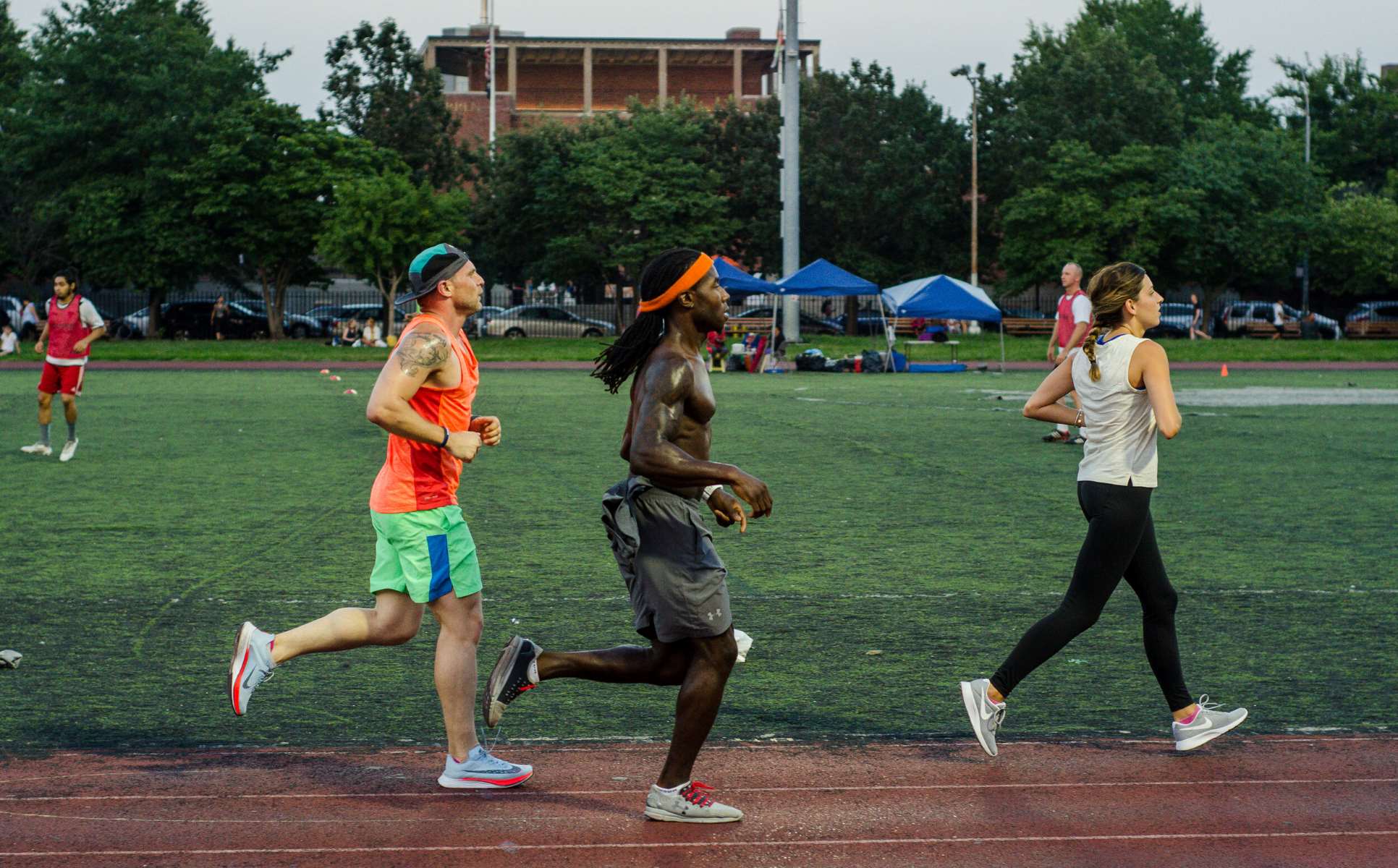

Featured
Why Is Track And Field Important
Published: September 2, 2023
Discover why track and field is important with our featured articles, highlighting the physical fitness benefits and the impact on personal growth and discipline.
Introduction
Track and field, often referred to as athletics, is a sport that encompasses various disciplines including running, jumping, and throwing. It is one of the oldest sports in the world, dating back to ancient civilizations such as the Greeks and Romans. In modern times, track and field has gained immense popularity due to its physical, mental, and social benefits.
Track and field is not just a sport; it is a way of life. It combines individual effort with team spirit, promoting discipline, dedication, and perseverance. Whether you are a professional athlete competing on a global stage or a casual enthusiast participating in local events, track and field offers a plethora of benefits for everyone involved.
In this article, we will explore the importance of track and field and why it has become such a significant sport in today’s society. From physical fitness and skill development to the inclusive and adaptive nature of the sport, we will delve into the various aspects that make track and field so captivating and rewarding.
So, let’s lace up our running shoes and embark on a journey to discover the many reasons why track and field is such an important and cherished sport.
Physical Fitness and Health Benefits
Track and field is renowned for its ability to improve physical fitness and contribute to overall health and well-being. The various disciplines within track and field require a combination of strength, agility, speed, and endurance, making it a fantastic sport for maintaining a healthy and active lifestyle.
Running, which is a fundamental part of track and field, is a great cardiovascular workout that helps strengthen the heart and lungs. Regular running can improve cardiovascular fitness, reduce the risk of heart disease, and enhance stamina and endurance. It also helps in managing weight and improving metabolism.
Jumping and throwing events in track and field require significant muscle power and coordination. The explosive movements involved in disciplines like long jump, high jump, shot put, and javelin throw help develop muscular strength and improve overall body coordination and balance.
Engaging in track and field also promotes flexibility as athletes need to have a wide range of motion in their joints to perform various movements efficiently. Stretching and warm-up exercises are an essential part of track and field training, aiding in injury prevention and maintaining flexibility.
Besides physical fitness, track and field also has numerous mental health benefits. Regular exercise, including participating in track and field, has been proven to reduce stress and anxiety levels due to the release of endorphins, also known as the “feel-good” hormones. It can improve mood, boost self-esteem, and enhance overall mental well-being.
Participating in track and field allows individuals to set goals and work towards achieving them, fostering a sense of accomplishment and self-confidence. It teaches discipline and perseverance as athletes train consistently to improve their performance and reach new personal bests.
Incorporating track and field into one’s lifestyle promotes an active and healthy routine, benefiting both physical and mental health. The sport offers a holistic approach to well-being, making it an excellent choice for individuals of all ages and fitness levels.
Skill Development and Training
Track and field is a sport that requires a wide range of skills, and participating in it can greatly enhance an individual’s athletic abilities. The sport provides opportunities for athletes to develop and refine their skills through dedicated training and practice.
One of the key elements of track and field is speed. Sprinting events, such as the 100-meter dash, demand explosive power and efficient running technique. Athletes must focus on developing optimal stride length, stride frequency, and acceleration to maximize their speed potential.
Endurance is another crucial skill in track and field. Long-distance running events, like the 800-meter or 1500-meter races, require athletes to have exceptional stamina and the ability to maintain a steady pace over a prolonged period. Training for endurance involves a combination of long-distance runs, interval training, and aerobic exercises.
Jumping events, such as the long jump or high jump, require athletes to master techniques that maximize their vertical leap. This involves learning proper take-off techniques, body positioning, and landing mechanics. With consistent training, athletes can improve their jumping skills and achieve greater distances or heights.
Throwing events, such as shot put or javelin throw, require a unique combination of strength, technique, and coordination. Athletes must develop strong core and upper body strength to generate power for effective throws. Precision and timing are also essential to deliver the implement with maximum force and accuracy.
In addition to the specific skills required in each discipline, track and field training also focuses on developing overall athleticism. This includes agility, coordination, balance, and flexibility. Athletes engage in various drills and exercises that enhance these aspects, allowing them to perform better in their respective events.
Track and field training is not limited to physical skills. Athletes also learn important mental skills such as focus, concentration, and visualization. The ability to stay mentally strong during competition is crucial to achieving peak performance.
Through consistent training and dedication, athletes in track and field are constantly seeking to improve and refine their skills. The sport provides an excellent platform for individuals to develop their athletic abilities and reach their full potential.
Competition and Sportsmanship
Track and field is a highly competitive sport that fosters a strong spirit of competition among athletes. Whether it’s competing against oneself to set new personal records or going head-to-head with opponents in a race, the competitive nature of track and field provides a unique and exhilarating experience.
Participating in competitions in track and field allows athletes to showcase their skills and measure their progress against others. This competitive aspect motivates athletes to continually push their limits and strive for excellence. It fosters a drive for self-improvement and encourages athletes to set higher goals and challenge themselves.
Moreover, track and field competitions offer valuable opportunities for athletes to develop important life skills such as resilience, perseverance, and discipline. The intense and challenging nature of the sport helps athletes build mental toughness as they cope with pressure and bounce back from setbacks.
One of the remarkable aspects of track and field is the emphasis on sportsmanship and fair play. Athletes are expected to demonstrate respect, honesty, and integrity towards their competitors, officials, and the sport itself. Good sportsmanship is highly valued, and athletes are encouraged to congratulate and show appreciation for their opponents’ performances.
In track and field, athletes often form strong connections and friendships with their competitors. They understand the immense dedication and hard work required to excel in the sport, creating a sense of camaraderie amongst themselves. This camaraderie is evident in the support and encouragement athletes offer to one another, even in the most intense competition settings.
Track and field competitions also teach athletes valuable lessons in handling success and failure. Winning and losing are both part of competitive sports, and athletes learn to celebrate victories with humility and handle defeats with grace. These experiences build character and resilience, preparing athletes for the challenges they may face both on and off the track.
The competitive nature of track and field, combined with the focus on sportsmanship, creates an environment that nurtures personal growth and development. It teaches athletes essential life skills and values that extend far beyond the track itself.
Scholarships and College Opportunities
Track and field can open up a world of scholarship and college opportunities for athletes who excel in the sport. Many colleges and universities around the world offer athletic scholarships specifically for track and field athletes, providing financial support to pursue higher education while continuing to compete at a high level.
Athletic scholarships in track and field can range from partial to full scholarships, covering tuition fees, accommodation, and other educational expenses. These scholarships are often offered to athletes who have demonstrated exceptional performance and potential in their respective events.
Being a track and field athlete can significantly enhance an individual’s college application. Colleges often seek out athletes who regularly compete and achieve notable results in track and field competitions. The dedication and discipline required in the sport are highly valued by admissions committees, indicating a student’s ability to balance academics and extracurricular responsibilities.
Apart from scholarships, track and field can also provide athletes with unique networking opportunities. College competitions and meets attract coaches and scouts from various colleges and universities, giving athletes the chance to be noticed and recruited for athletic programs. These networking opportunities allow athletes to showcase their skills and potentially secure spots on college track and field teams.
Being a part of a college track and field team can provide numerous benefits beyond financial support. Athletes receive professional coaching, access to state-of-the-art training facilities, and the opportunity to compete against other elite athletes. This environment fosters further skill development and allows athletes to reach their full potential in the sport.
Furthermore, being a college track and field athlete can also open doors to compete at the national and international level. Athletes who excel in college competitions may have opportunities to participate in prestigious events such as the NCAA Championships, Olympic trials, and even represent their countries in international competitions.
Overall, track and field can serve as a pathway to higher education through athletic scholarships and college opportunities. It offers athletes the chance to pursue their academic and athletic passions simultaneously, setting them up for success in both their sporting careers and future endeavors beyond the track.
Olympic and International Recognition
Track and field is a sport deeply intertwined with the Olympic Games and holds immense international recognition. The sport has a storied history in the Olympics, dating back to its inclusion in the ancient Olympic Games held in Olympia, Greece.
The Olympic Games are the pinnacle of athletic achievement, bringing together the best track and field athletes from around the globe to compete on the world stage. Athletes have the opportunity to represent their countries and strive for one of the ultimate honors in sports, an Olympic medal.
Participating in the Olympics not only showcases an athlete’s prowess and dedication but also brings pride and honor to their home nation. It is a testament to an athlete’s hard work and talent in the sport and offers them the chance to become household names and inspire future generations.
Within track and field, there are various international competitions that provide athletes with opportunities to represent their countries on a global scale. These include events such as the World Athletics Championships, Commonwealth Games, and continental championships like the European Athletics Championships and Pan American Games.
Competing in international events not only allows athletes to showcase their skills but also offers invaluable experiences, as they engage with athletes from different countries and cultures. It promotes cultural exchange, understanding, and camaraderie among athletes, fostering a sense of unity and global connection.
Track and field’s international recognition extends beyond the elite level. The sport is also popular at the grassroots level, where athletes from all corners of the world participate in local, national, and regional competitions. These events serve as platforms for fostering cultural understanding, promoting healthy competition, and embracing diversity.
Moreover, the international nature of track and field opens up opportunities for athletes to travel and experience different parts of the world. Athletes may compete in iconic stadiums and venues, immerse themselves in different cultures, and forge lifelong connections with athletes from diverse backgrounds.
The Olympic and international recognition of track and field highlights the sport’s universal appeal and its ability to unite people through a shared passion for athletics. This recognition elevates both the sport and the athletes, showcasing their achievements and inspiring individuals of all ages and backgrounds to get involved in the sport.
Teamwork and Camaraderie
While track and field is often seen as an individual sport, there is also a strong emphasis on teamwork and camaraderie. Athletes may compete individually in their respective events, but they often train and support each other as part of a team, creating a sense of unity and shared purpose.
In track and field, athletes from the same school or club come together as a team to participate in meets and competitions. They support and encourage one another during training sessions, pushing each other to reach their full potential. This collaborative environment builds a strong sense of camaraderie and creates a support system for athletes to lean on.
Teamwork plays a crucial role in relay events, where athletes must seamlessly exchange the baton and work together to achieve the fastest time. The success of a relay team depends on the synchronization and coordination of each team member’s efforts. This fosters a deep sense of teamwork and trust among relay athletes.
Teamwork in track and field extends beyond the athletes themselves. There is a collaborative effort between athletes and their coaches, trainers, and support staff. Coaches play a vital role in guiding athletes, structuring training programs, and providing encouragement. The sense of camaraderie between athletes and coaches creates a nurturing environment for growth and achievement.
Participating in track and field as part of a team also teaches valuable life lessons and skills. Athletes learn to work collectively towards a common goal, understanding the importance of cooperation and communication. They develop skills such as leadership, accountability, and problem-solving, which are transferable to various aspects of life.
In addition to the team atmosphere during training and competition, track and field meets bring together athletes from different schools, clubs, and regions. These events create opportunities for athletes to socialize and form friendships with individuals who share their passion for the sport. The shared experiences and challenges of track and field foster a unique bond that transcends team affiliations.
The camaraderie in track and field is evident in the support and encouragement athletes show to their competitors. Even in the midst of intense competition, athletes often cheer each other on and celebrate each other’s accomplishments. This culture of sportsmanship and camaraderie creates an uplifting and positive environment for all involved.
Ultimately, track and field promotes a sense of teamwork and camaraderie that goes beyond individual performance. It nurtures a supportive community and builds lifelong connections among athletes, trainers, and supporters, making it an extraordinary and inclusive sport.
Mental and Emotional Well-being
In addition to the physical benefits, track and field also contributes significantly to mental and emotional well-being. Engaging in the sport offers a range of positive effects on mental health, promoting overall happiness, and emotional balance.
Regular exercise, such as participating in track and field, has been proven to have a positive impact on mental health. Physical activity releases endorphins, commonly known as “feel-good” hormones, which reduce stress, improve mood, and boost overall mental well-being.
Track and field provides an outlet for athletes to release built-up stress, tension, and anxiety. The intense physical exertion during training and competition helps to clear the mind, improving focus and promoting relaxation.
The sport also fosters a sense of accomplishment and self-confidence as athletes work towards improving their performance and achieving personal goals. Setting goals and working diligently to attain them can enhance self-esteem and self-belief.
Track and field requires mental resilience and the ability to cope with pressure and setbacks. Athletes may face challenges such as injuries, time constraints, or difficult competitions. Overcoming these obstacles builds mental strength and resilience, empowering athletes to face any adversity in life.
Participating in track and field can also be a form of stress relief and an avenue for self-expression. It allows athletes to channel their emotions, frustrations, and energy into productive and positive outlets. The release of emotions through physical activity can have a therapeutic effect on athletes’ mental well-being.
The social aspect of track and field also plays a significant role in mental and emotional well-being. Being part of a team or a larger track and field community provides a supportive network of like-minded individuals who share a passion for the sport. This sense of belonging and camaraderie can alleviate feelings of isolation and improve overall mental health.
Engaging in track and field can also positively impact cognitive function. The sport requires focus, strategy, and mental acuity, enhancing cognitive skills such as decision-making, concentration, and problem-solving.
Ultimately, participating in track and field can improve mental and emotional well-being by reducing stress, boosting mood, promoting self-confidence, and fostering a strong support network. The sport provides an avenue for emotional release, personal growth, and the development of mental resilience, making it an invaluable asset for overall well-being.
Inclusive and Adaptive Nature of Track and Field
Track and field is known for its inclusive and adaptive nature, welcoming athletes of all abilities and creating opportunities for individuals to participate and excel in the sport.
One of the unique aspects of track and field is its versatility in accommodating athletes with different physical abilities. The sport offers a wide range of events that cater to various strengths and abilities, ensuring that athletes can find disciplines where they can thrive.
Track and field competitions often have separate categories or divisions for athletes with disabilities. This allows athletes with physical impairments, such as amputations or visual impairments, to compete against others with similar abilities. Adaptive equipment and modifications are also available to ensure fair competition for all participants.
Beyond formal competitions, track and field is also adaptive in its training methods. Coaches and trainers can develop personalized training programs to suit the individual needs of athletes with disabilities, focusing on their strengths and working on areas that require improvement.
Track and field’s inclusive nature extends to athletes of all ages as well. The sport offers various age categories, ranging from youth to masters. This allows individuals to continue participating and enjoying the sport throughout their lives, regardless of their age.
In recent years, track and field has gained popularity in the Paralympic Games, providing a platform for athletes with disabilities to showcase their skills and achieve recognition on a global stage. The Paralympics have helped raise awareness and promote inclusivity in track and field, inspiring athletes of all abilities to embrace the sport.
For individuals with disabilities, participating in track and field has numerous benefits. It improves physical fitness, enhances confidence and self-esteem, fosters socialization and teamwork, and promotes a sense of belonging and empowerment.
Moreover, track and field encourages able-bodied and disabled athletes to compete together, fostering an inclusive environment and breaking down barriers. This integration creates opportunities for athletes to learn from one another, develop mutual respect, and challenge misconceptions about disability.
The adaptive and inclusive nature of track and field makes it a sport that celebrates diversity and provides opportunities for athletes of all abilities. It showcases the amazing capabilities and determination of individuals with disabilities, challenging stereotypes, and promoting inclusivity in the sporting world and beyond.
Conclusion
Track and field is a sport that holds immense significance and offers a multitude of benefits to individuals of all ages and abilities. From its contributions to physical fitness and mental well-being to the opportunities for competition, teamwork, and personal growth, track and field has earned its place as a cherished and important sport.
The physical benefits of track and field are undeniable. It promotes cardiovascular fitness, develops strength, agility, and coordination, and enhances flexibility. Regular participation in the sport improves overall health and contributes to a healthy and active lifestyle.
Track and field also fosters important life skills and values. Athletes learn discipline, perseverance, and teamwork. The competitive nature of the sport teaches athletes to set goals, push their limits, and handle success and failure with grace and resilience.
Furthermore, track and field offers numerous opportunities for scholarships and college participation, opening doors to higher education while allowing athletes to continue pursuing their athletic passions.
The international recognition of track and field, particularly in events like the Olympics, brings athletes from various countries together to showcase their skills and compete at the highest level. Track and field’s inclusive and adaptive nature provides opportunities for athletes of all abilities to participate, promoting unity and diversity within the sporting community.
Track and field also contributes to mental and emotional well-being by reducing stress, boosting self-esteem, and fostering a sense of camaraderie and support among athletes. It encourages personal growth, resilience, and the development of important life skills.
In conclusion, track and field is a sport that offers much more than physical fitness and competition. It is a platform for personal growth, teamwork, and inclusivity. Whether you’re a dedicated athlete striving for Olympic glory or a casual participant enjoying the benefits of staying active, track and field has something to offer everyone. So, lace up your shoes, step onto the track, and discover the many reasons why track and field is a truly remarkable sport.









